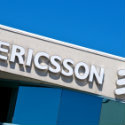Eurobites: Ericsson acquisition boosts its private-network credentials
Also in today's EMEA regional roundup: Nokia lands private-network role in Paris rail project; ADVA slices its pizza box; Proximus boosts Wi-Fi with AirTies.

Also in today's EMEA regional roundup: Nokia lands private-network role in Paris rail project; ADVA slices its pizza box; Proximus boosts Wi-Fi with AirTies.
Ericsson has agreed to buy Genaker, a small specialist developer of mission-critical push-to-talk (MC-PTT) technology, for an undisclosed sum. The acquisition of the Barcelona-based company, which includes the transfer of 30 staff, "strengthens Ericsson's MC-PTT offering as the mission critical communications and private network market is going through a significant technology shift." Ericsson sees the opportunity to replace traditional PTT systems, which enable walkie-talkie style voice communications only, with systems that enable multimedia (video, images, data transfers) as well as high-quality voice applications over cellular connections. The market for mission-critical and private network systems is growing, with one of Ericsson's key rivals, Nokia, having gained a commanding position in the private networks sector. For more on the Genaker deal, see this press release. (See Nokia: We Run 120+ Private Wireless Networks Around the World.)
A consortium made up of Nokia and Engie Solutions has been chosen to deploy an industrial-grade, private LTE network for new lines on the Grand Paris Express Metro, a major automated transit project that will bring 68 new stations and 200km of additional tracks to form what is basically a "ring route" around the French capital.
ADVA says it can help network operators make better use of the spectrum in their optical networks with a combination of technologies – namely, "coherent optics, programmable flexgrid technology and intelligent network control" – that enables the full available capacity to be "sliced and offered as differentiated services to multiple end users." ADVA says the key to enabling this functionality is its FSP 3000 open line system (OLS): "Its spectrum gateway functionality and advanced optical layer control empower CSPs to elastically allocate optical spectrum to services and deliver virtually unlimited capacity," claims the vendor, missing the opportunity to mention that it's enabling slicing with a pizza box… For more details, see this press release.
Belgian's Proximus has turned to cloud technology from AirTies to help manage its customers' home Wi-Fi. AirTies Cloud is described as a "flexible management platform that continuously optimizes the network," giving service providers "insights and analysis on connected devices and data consumption patterns within the home."
Finnish operator Elisa says it will shut down its 3G network at the end of 2023, freeing up, it says, the frequencies currently used for 3G for its 4G and 5G services. Elisa says that in the vast majority of cases this will not require a change of device, though it does warn that "old hunting cameras" may pose a problem. Ah, those old hunting cameras – always a bugbear. Especially if you're a bear.
EE, the UK mobile operator owned by BT, has switched on 5G in 21 more towns and cities, bringing its 5G service to 71 locations in total. Good news, potentially, for customers in Swadlincote, Dinnington and South Shields, to name but three. (See A User Review of EE's 5G Network in London.)
Spare a thought for the workers whose lot it is to dig the trenches that carry the fiber to where it's next needed. Many of those wielding the power tools to carry out the work may end up suffering from hand arm vibration syndrome (HAVS), also known as "white finger." Now, UK altnet CityFibre and its partner Callan Connect are attempting to address the problem by testing new HAV glove monitors which analyze the vibration data and alert operatives when vibration levels are nearing the danger zone. The monitors have been developed by Feraru Dynamics, a Coventry-based startup.
"Multicloud" specialist UKCloud Health has won a place on the National Health Service's new £3 billion (US$3.8 billion) procurement framework. The company is hoping to be able to help the NHS as it moves to further "digitalize" its way of working.
— Paul Rainford, Assistant Editor, Europe, Light Reading. Additional material and pizza allusions by Ray Le Maistre.
Read more about:
EuropeAbout the Author(s)
You May Also Like




.jpg?width=300&auto=webp&quality=80&disable=upscale)







